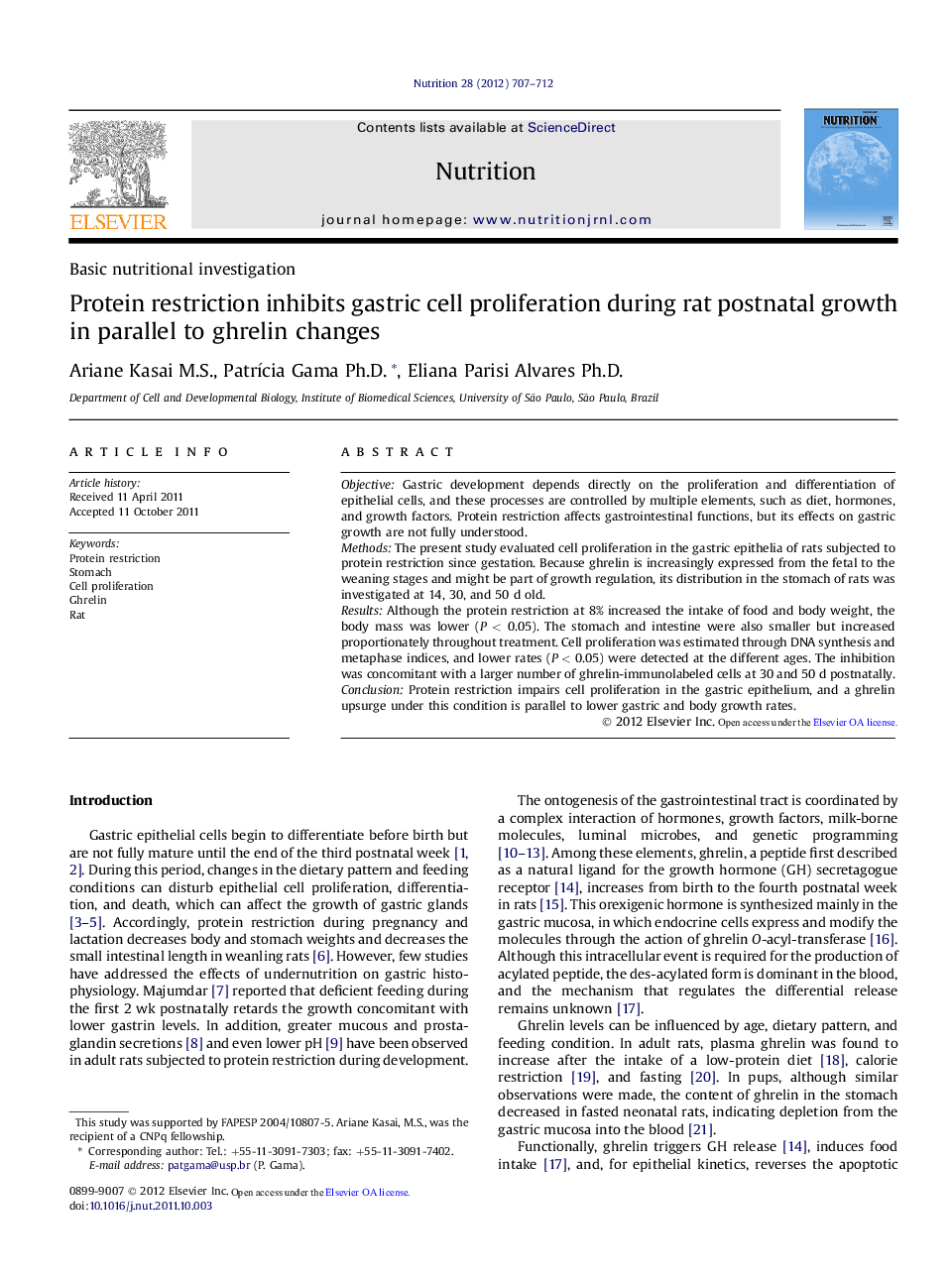| Article ID | Journal | Published Year | Pages | File Type |
|---|---|---|---|---|
| 6090397 | Nutrition | 2012 | 6 Pages |
ObjectiveGastric development depends directly on the proliferation and differentiation of epithelial cells, and these processes are controlled by multiple elements, such as diet, hormones, and growth factors. Protein restriction affects gastrointestinal functions, but its effects on gastric growth are not fully understood.MethodsThe present study evaluated cell proliferation in the gastric epithelia of rats subjected to protein restriction since gestation. Because ghrelin is increasingly expressed from the fetal to the weaning stages and might be part of growth regulation, its distribution in the stomach of rats was investigated at 14, 30, and 50 d old.ResultsAlthough the protein restriction at 8% increased the intake of food and body weight, the body mass was lower (P < 0.05). The stomach and intestine were also smaller but increased proportionately throughout treatment. Cell proliferation was estimated through DNA synthesis and metaphase indices, and lower rates (P < 0.05) were detected at the different ages. The inhibition was concomitant with a larger number of ghrelin-immunolabeled cells at 30 and 50 d postnatally.ConclusionProtein restriction impairs cell proliferation in the gastric epithelium, and a ghrelin upsurge under this condition is parallel to lower gastric and body growth rates.
